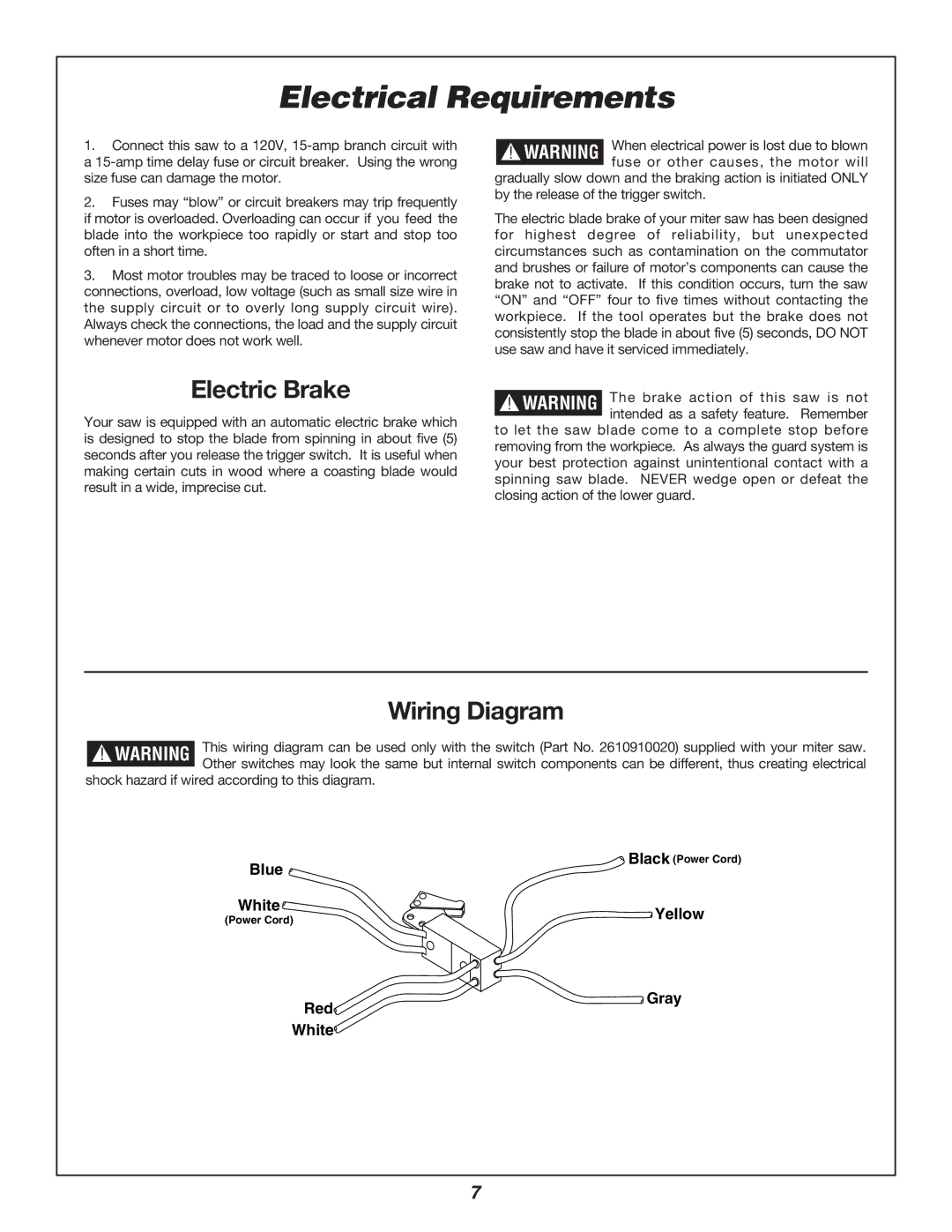
Electrical Requirements
1.Connect this saw to a 120V,
2.Fuses may “blow” or circuit breakers may trip frequently if motor is overloaded. Overloading can occur if you feed the blade into the workpiece too rapidly or start and stop too often in a short time.
3.Most motor troubles may be traced to loose or incorrect connections, overload, low voltage (such as small size wire in the supply circuit or to overly long supply circuit wire). Always check the connections, the load and the supply circuit whenever motor does not work well.
Electric Brake
Your saw is equipped with an automatic electric brake which is designed to stop the blade from spinning in about five (5) seconds after you release the trigger switch. It is useful when making certain cuts in wood where a coasting blade would result in a wide, imprecise cut.
! WARNING When electrical power is lost due to blown fuse or other causes, the motor will
gradually slow down and the braking action is initiated ONLY by the release of the trigger switch.
The electric blade brake of your miter saw has been designed for highest degree of reliability, but unexpected circumstances such as contamination on the commutator and brushes or failure of motor’s components can cause the brake not to activate. If this condition occurs, turn the saw “ON” and “OFF” four to five times without contacting the workpiece. If the tool operates but the brake does not consistently stop the blade in about five (5) seconds, DO NOT use saw and have it serviced immediately.
!WARNING The brake action of this saw is not intended as a safety feature. Remember
to let the saw blade come to a complete stop before removing from the workpiece. As always the guard system is your best protection against unintentional contact with a spinning saw blade. NEVER wedge open or defeat the closing action of the lower guard.
Wiring Diagram
!WARNING This wiring diagram can be used only with the switch (Part No. 2610910020) supplied with your miter saw. Other switches may look the same but internal switch components can be different, thus creating electrical
shock hazard if wired according to this diagram.
Blue
White
(Power Cord)
Red
White
Black (Power Cord)
Yellow
![]() Gray
Gray
7
